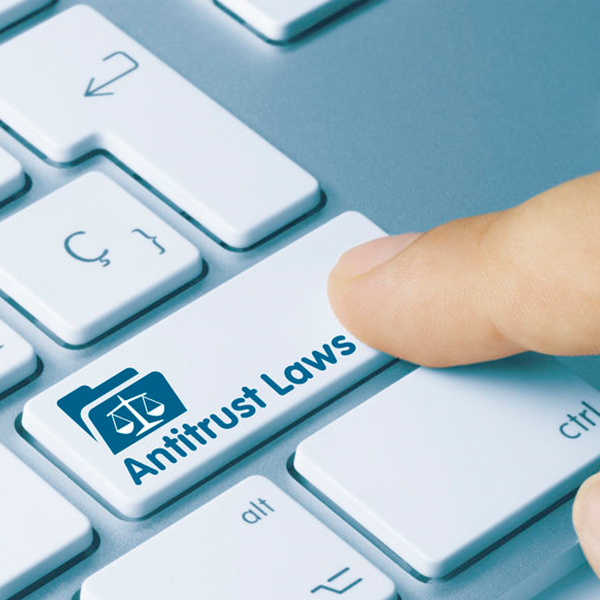Over the past two decades, we have witnessed the meteoric growth of tech conglomerates such as Facebook, Google (Alphabet), Apple and Amazon, whose gobbling up nascent competitors, along with other corporate strategies, has all but converted them into behemoths of the Information Age, seemingly mirroring the giants of Gilded Age of the late 1800s and early 1900s. The US government has taken notice of their spectacular rise and is beginning to take action on what it believes to be anticompetitive behavior.
What is an Antitrust Enforcement Action?
Around the turn of the 20th century, the term “trust” was coined to describe a new type of large corporation, as American business titans in industries such as steel, oil, railroad, and banking began to form larger conglomerates. Regulators at the time sought to establish laws to keep these trusts from growing too large and powerful, and to foment a healthy volume of competition in the market. The theory behind antitrust policy is mainly that if big businesses outperform smaller competitors, and the market is instead ruled by a small number of large monopolies, then that would result in a dangerous consolidation of economic power into a handful of companies, potentially threatening a free and open market.
As a result, antitrust laws were implemented to prevent companies from using anticompetitive business practices, such as price fixing, group boycotts, and exclusionary exclusive dealing contracts or trade association rules, to stifle competition. “Trustbusters”, as these regulators were called, argued that monopolies, which had historically been a tool of autocratic governments, undermined democracy by concentrating economic power. Hence, the federal laws known as the Sherman Act of 1890, the Clayton Act of 1914, and the Federal Trade Commission Act of 1914, were subsequently enacted to create rules to govern business practices and break up monopolies. This ushered in a long period when corporations were required to respect the interests of consumers, suppliers, and communities.
What is the history of Antitrust and Big Tech?
So, are there any parallels between these 20th Century industrial tycoons and today’s Tech companies? The federal government seems to think so. In the case of Google, lawmakers are concerned with the company’s dominance of the advertising and search markets, and how that has affected other online businesses. They claim that Google is displacing the open web with a closed environment of its own making, undermining many industries that depend on advertising and web traffic. As for the online marketplace Amazon, it is being probed over whether it promotes its own brands ahead of third-party sellers. With computer and smartphone developer Apple, there are questions regarding the company’s preferential treatment of its own web and mobile applications over those of third parties in its App Store. And finally, for Facebook, the social media giant is in the hot seat for its recent acquisitions of would-be competitors WhatsApp and Instagram, as well as how it limits third-party developers’ use of it’s application programming interfaces, known as “APIs”.
A monopoly or a good business model?
An interesting wrinkle in the cases for these modern-day conglomerates is that market dominance is not necessarily indicative of anticompetitive behavior. For example, back in the 1800s, when Standard Oil controlled the marketplace, consumers had only one option for where to buy oil. Meanwhile, in the case of Google, consumers typically choose to use the Google search engine and features, with viable competitors such as Yahoo, Microsoft and others still available. Hence, there is an argument in favor of consumers not being harmed. However, one must be mindful that corporate deregulation has prevailed since the 1980s; and that forty years of deregulation have given America’s largest corporations the ability to impose their will on competitors, suppliers, customers, employees, and communities.
Despite the fact that consumers today have a choice as to where to direct their technological products experiences, it is still worthwhile to consider whether too much power in the hands of too few companies can ever lead to a free and open market.








